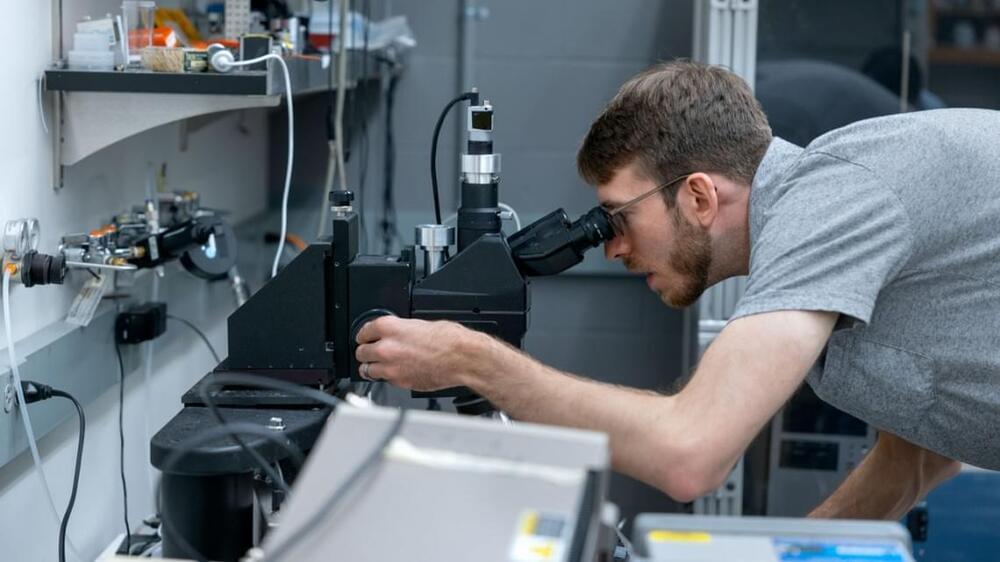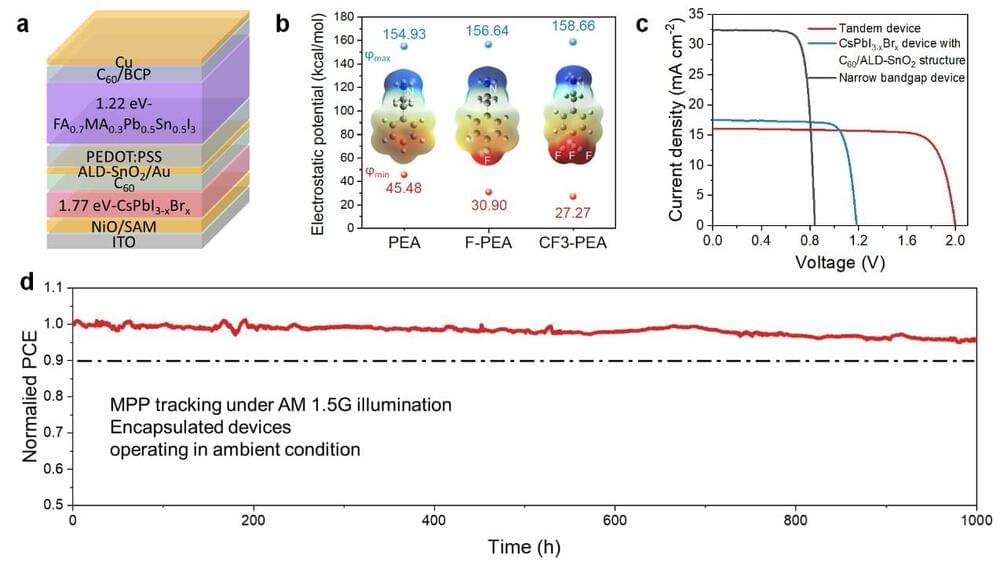May 4, 2023
Brains on board: Smart microrobots walk autonomously
Posted by Shailesh Prasad in categories: robotics/AI, sustainability
A collaborative effort has installed electronic “brains” on solar-powered robots that are 100 to 250 micrometers in size – smaller than an ant’s head – so that they can walk autonomously without being externally controlled.
Cornell researchers installed electronic “brains” on solar-powered robots that are 100 to 250 micrometers in size, so the tiny bots can walk autonomously without being externally controlled. Noël Heaney/Cornell University
Continue reading “Brains on board: Smart microrobots walk autonomously” »

















